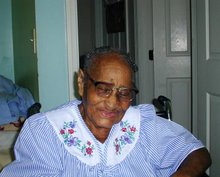 This post is for those of you with a silly sense of humor like myself. There is a hurricane raging in the Pacific Ocean near Hawaii named Hurricane Flossie. While I have total compassion to anyone who may be a victim of this horrific storm, I could not allow the irony of the situation to pass. With a name like Flossie, what are the odds that the National Hurricane Center would choose it as the name of this specific hurricane. Therefore, I am dedicating this post to a comparison of the commonalities between Flossie, the person and Flossie the Hurricane.
This post is for those of you with a silly sense of humor like myself. There is a hurricane raging in the Pacific Ocean near Hawaii named Hurricane Flossie. While I have total compassion to anyone who may be a victim of this horrific storm, I could not allow the irony of the situation to pass. With a name like Flossie, what are the odds that the National Hurricane Center would choose it as the name of this specific hurricane. Therefore, I am dedicating this post to a comparison of the commonalities between Flossie, the person and Flossie the Hurricane.- Resides in the Northern Hemisphere.
- Subject to unexpected temper surges.
- Temper that ignites and blows with unprecedented force. Its sole purpose to whip anyone in close proximity into shape.
- Typically overwhelms all within close proximity with a flood of emotions.
- Fiercely independent.
- Touches all within her path and sphere of influence.
- Will be remembered forever.
- Distinctive name.
- Female to the core.
- Storm surges - An abnormal rise in sea level due to the force of the hurricane winds.
- Storm tides - The actual level of sea water resulting from the astronomic tide combined with the storm surge.
- Tornadoes
- Flooding
For several hundred years many hurricanes in the West Indies were named after the particular saint's day on which the hurricane occurred. Before the end of the l9th century an Australian meteorologist began giving women's names to tropical storms. Since 1953, Atlantic tropical storms have been named from lists originated by the National Hurricane Center. They are now maintained and updated by an international committee of the World Meteorological Organization. The original name lists featured only women's names. In 1979, men's names were introduced and they alternate with the women's names. Six lists are used in rotation. Thus, the 2006 list will be used again in 2012. The only time that there is a change in the list is if a storm is so deadly or costly that the future use of its name on a different storm would be inappropriate for reasons of sensitivity.
Experience shows that the use of short, distinctive names in written as well as spoken communications is quicker and less subject to error than the older, more cumbersome latitude-longitude identification methods. The use of easily remembered names greatly reduces confusion when two or more tropical storms occur at the same time.
See the resemblance? :-)
.jpg)








2 comments:
My name is Kathy, and I am the primary caregiver for my 79 year old Dad who has Alzheimer's disease and lives with me in North Carolina.
I am writing a daily blog that shows the lighter side of caring for someone with dementia.
Please pass this link along to anyone you feel would enjoy it.
www.KnowItAlz.com
Thanks,
Kathy
Kathy,
It is a wonderful thing that you are doing - caring for your dad. I am sure it is a blessing to him as well.
Continue to blog - it is a wonderful way to relieve the stress of being a caregiver. It is also a way to remember.
I will add your link to my favorites and ask that you do the same. The more we can connect as caregivers and share our experiences the better.
Happy Blogging!
Post a Comment